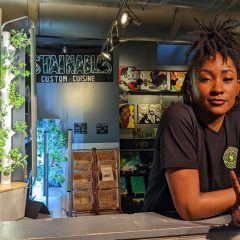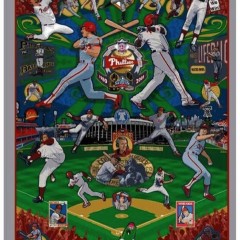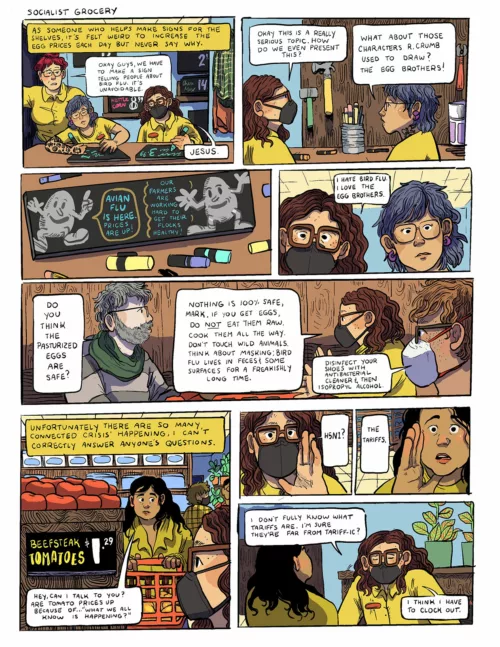Revisioning and setting boundaries in our artistic practices by Logan Cryer was commissioned by Artblog as part of Field Perspectives 2019, a co-publishing initiative organized and supported by Common Field. Field Perspectives 2019 invites thinking that reflects on the future of the artist organizing field. The program, a collaboration between Common Field and nine arts publications, is published in two parts. Part 2 includes texts by Art Papers The Artblog, BmoreArt, Momus, Terremoto, The Third Rail and Title Magazine. Part 1 included texts by Chicago Artist Writers, The Rib and Sixty Inches from Center. Generous support for Field Perspectives is provided by The Andy Warhol Foundation for the Visual Arts.
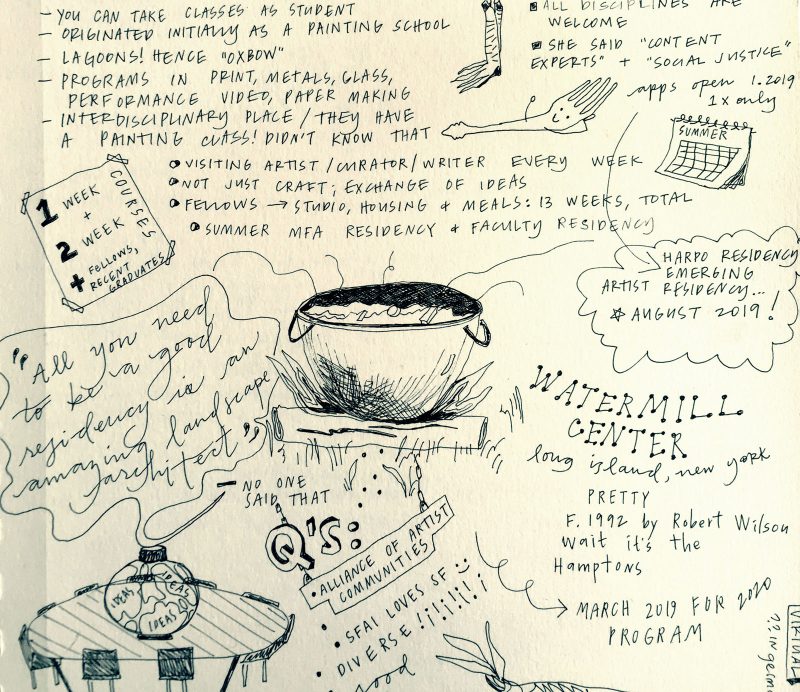
In my junior year of college my professor confessed to me, “It’s hard to be an artist and no ones cares if you stop.” We were reflecting on the difficulty of staying motivated as a working artist. Even as a student I could imagine what she meant. After three years of art school my attitude towards being in the art field had shifted from a “Wouldn’t it be loverly?” mentality to a more “Steppin’ To the Bad Side” kinda vibe. I was just beginning to understand how lonely art making could be and how the environment in which artists were working was not designed for people to be successful. It felt like my professor was right; either you found a way to survive through a network of systemic disadvantages, or you didn’t. Sadly, no one needed you to dedicate your life to art.
A majority of the hardships associated with working in the creative field are caused by external financial forces. Philadelphia lacks governmental infrastructure that will fund individual artists. Foundations that can provide substantial individual support are few and far between and are nearly impossible to reach for artists who still trying to jump start their careers. This leaves artists typically self-financing their work with a hodgepodge of incomes. At best, selecting jobs in the arts and culture sector is like a variation of the “fast, cheap, good” dilemma; good pay, stability, using the skills you actually developed by training for years to be an artist- pick two.
There is tension in the desire to make art and working in a society where being an artist is so extremely difficult. Whenever there is an external hardship, culture develops around it like ivy. Our cultural response to this tension is to embrace an attitude of trying harder and doing more, which places the blame of any shortcomings on the individual. As artists, we tend to
participate in the struggle olympics: the harder you work and the more other people can see how much you’re sacrificing, the better. The struggle is real, but going through it does not prove that you are deserving of a successful and sustainable artistic career. I’ll say that again for those in the back; you do not have to prove you deserve to be an artist by sacrificing your health, happiness, stability, and general wellbeing.
This relationship that many of us have to art making is not a healthy one. A good relationship wouldn’t feel like you have to give everything in order for it to work. It wouldn’t be marked by extreme highs and lows. It wouldn’t involve feeling like you’re so lucky just to be a part of it and have you feeling that your finances, mental health, and physical health are secondary.
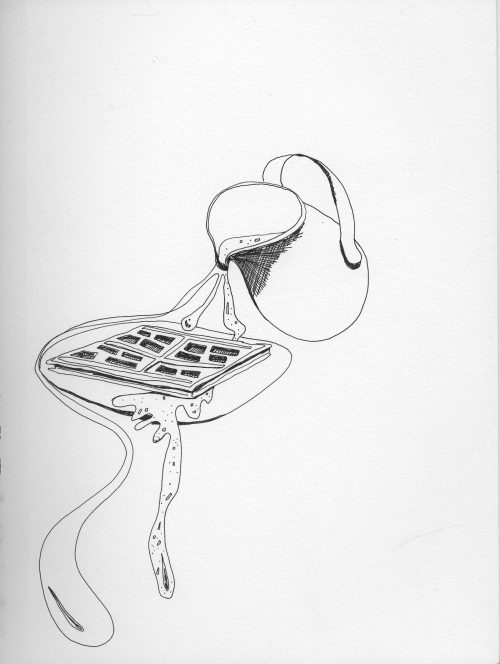
Like the saying goes, if a relationship isn’t going well, you either break up or make up.
Let’s start with the decision to make up. What core beliefs about our relationship to art can shift in such a way that we can have a more nurturing, fulfilling relationship with it? How can we transform the way we view our artistic practice before we start advocating for change?
I think being an artist is to make a healthy choice to center a portion of your life around aesthetic exchange and that we should live in a city where all people are welcomed to decide how large that portion should be. If that is true, the attitude that individuals are either Artists or Not-Artists needs to disintegrate. If there are conceptual boundaries around what an artist looks like then they are based on who already have achieved notoriety as an artist. We know that those people are overwhelmingly white, overwhelmingly male, overwhelmingly from upper-middle to upper-class backgrounds. What would it mean to acknowledge every person you see in world as someone who has dedicated a portion of their life to aesthetic exchange? How would it change who you make art for and with?
Maybe making art would feel less lonely. Depending on the practice, art making can be a very solitary act. In visual arts especially, we are educated about “the single genius artist,” as if profundity was nowhere until one person brought it forward. While genius can be manifested through the actions of one individual, the qualities of genius — cultural insight, historical knowledge, innovation, courage — lie within the hearts and minds of a community. How we take opportunities to regularly connect with and learn from our communities? What are ways qualities of artistic and cultural genius manifest outside of a strict artistic practice? What is the difference between stealing ideas from others and releasing total ownership of everything you produce?
How do we honor the creativity that is present in all of us? As people who have dedicated a large portion of our lives to artistic practices, we have an obligation to ensure creativity is being nurtured and valued in all of us. Advocacy work begins by recognizing how much power we as a community hold. Advocacy begins by transforming what we believe we owe to each other as we navigate capitalist structures. We are positioned to be knowledgeable advocates for stronger arts programs in public schools and throughout the city. We have the ability to demand that funders change the way money is distributed to both individuals and organizations in the city. We are generous enough to find ways to honor each other monetarily, even with not a lot of funds at our disposal.
All of that said, how do you know when it’s time to break up?
Breakups aren’t fun but, they can help keep us emotionally healthy. Break ups gives us a chance to set boundaries with other people- even people we might still care a great deal about. They give us new opportunities for growth and happiness. If working in this field makes you unhappy, if you are able to look around at your life and point to a majority of the stress and pain coming from making a commitment to a field that can not commit back to you, it’s okay to end things. Get some rest boo.
If you are somewhere in between, knowing that you can’t hold your current position forever and not yet ready to leave, make a mindful transition. There are many people of have been excluded from the arts community for centuries. What are you doing to give someone new an opportunity? Without conscious action, power transitions from the ruling demographic to the ruling demographic. Implementing new training programs, hiring practices, and job criteria can create substantial change in who is even able to make it to the interview.
My professor said, “No one cares if you stop,” and I’d like to reimagine what that could mean. Maybe it could mean, people don’t care if you stop making work because they care about you and want you to do what gives you peace. When we can transform each our relationships to our own artistic practice we can find ways to hold space for people who are struggling. And if we can hold space for people who are struggling, we can begin to work together to transform the art field in Philadelphia.
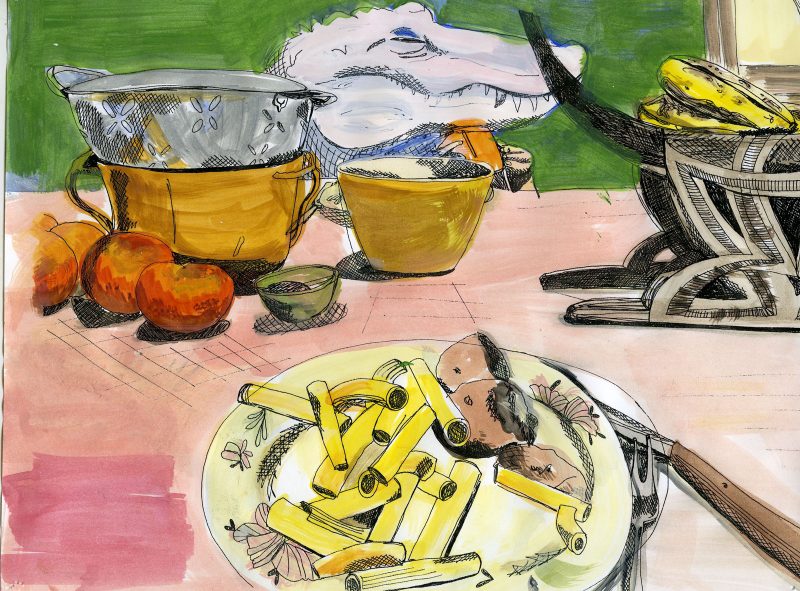
The Common Field national convening takes place in Philadelphia, April 27-28, 2019. See their website for information about the convening, for tickets and to participate in The Common Field.


